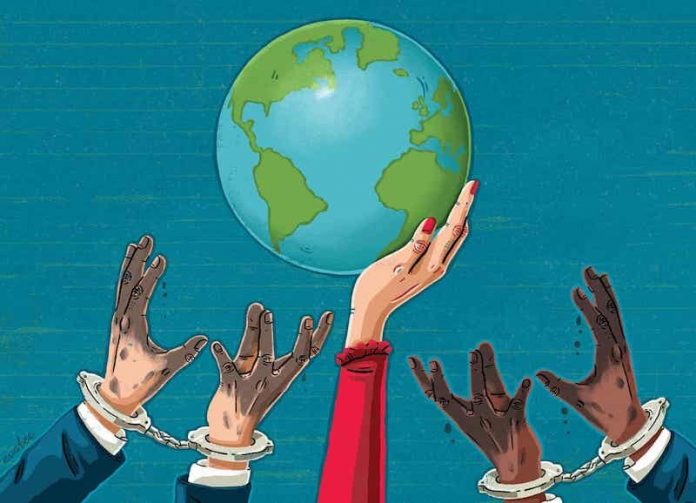This article has been written by Sourav Chakraborty, by pursuing a Diploma in Advanced Contract Drafting, Negotiation, and Dispute Resolution from LawSikho.
Table of Contents
Introduction
We all know the impact of environment and ecosystem in our life and if it gets destroyed the consequences we have to face, ecocide is the same concept; it is an umbrella period for all forms of environmental degradation from deforestation to emission; it simply means killing the environment and ecosystem, in other words, ecocide implies mass harm or obliteration to environments, executed with knowledge of the risk. As such, genuine damage to the characteristic living world. In these modern times, ecocide is committed at a very large scale in every part of the world and it is becoming an urgent need to create strict international legislation against it. The hypothesis is that nobody ought to go unpunished for obliterating the characteristic world. campaigners who accept the wrongdoing should go under the ward of the International Criminal Court, which can right now indict only four crimes: genocide, war crimes, crimes of aggression, and violations against humanity.
The article is written in support of the ecocide law to become an international offence by defining clear and specific grounds to prosecute an individual and also establishing procedures to identify the intention of the wrongdoer (these elements are briefly discussed in the article). Through this article, the reader will get knowledge about the history of ecocide law and the stance of the United Nations on it. Ongoing arguments and issues related to ecocide law. The current laws in India acting as ecocide laws and whether India’s legal framework needs to adopt a codified ecocide law? Overview of steps taken by different countries towards ecocide law and finally the conclusion if ecocide is declared as an international offence.
The stance of the U.N. on ecocide laws
In the present times, the ecocide law has emerged as one of the most popular crimes in provoking human peace. This crime has become so critical across the globe that several renowned lawyers, environmentalists, and research scholars are appealing in front of the United Nations to declare ecocide as an international crime. The ecocide crime has been practiced since past decades but eventually started emerging during the later years of the Vietnam War (1955-1975), where the US army attacked with a powerful chemical weapon named Agent Orange which caused great disaster by killing thousands of peoples and harming millions of hectares of unproductive land. In The 1972 UN Environmental Summit, all the representatives of different countries urged that destroying ecosystems should be considered an offense against humanity and Mankind, it was the time when the whole world got to know about the word Ecocide. After five years to avoid such disasters which were caused due to the Vietnam War, the UN adopted a treaty named Convention on the Prohibition of Military or Any Other Hostile Use of Environmental Modification Techniques to safeguard our ecosystem in order to maintain human peace.
Eventually, the fight for identification of offenses against nature was started by a Scottish lawyer named Polly Higgins in march 2010 when he presented to the UN an amendment to Roman law, proposing that the “ecocide” be legally recognized as the fifth international offense against human peace and mankind. Incidents like large dumped plastic islands at sea, tropical deforestation, oil spill, exploitation of wildlife are regularly destroying the ecosystem and that’s why several countries like Russia, Ukraine, Belarus, Ecuador, Kazakhstan, Kyrgyzstan, Moldova, Uzbekistan, Vietnam, Georgia, Armenia, and Tajikistan have declared Ecocide as an offense within their borders. Even Georgia and Armenia have sentenced up to fifteen years in prison for committing Ecocide. In 2018, the National Assembly of the United Nations adopted an objective entitled Towards a Global Pact for the Environment, which aims to lay the infrastructure for an International Environment Act. In 2019 the UN Environment Program published the first international assessment of the state of environmental law but it didn’t give a positive response. One of its stats highlights that many of the environmental agreements reached over the past 50 years are not working. This failure of the UN certainly indicates that we have to take these environmental matters seriously and clearly define grounds on how to prosecute individuals because day-by-day this field is getting complex and we are in an urgent need to develop international as well as national legislation which reduces offenses against the environment and protects the ecosystem.
Arguments and issues related to ecocide laws
In present times ecocide laws are gaining momentum and even parliamentarian and general assemblies are discussing the law. The co-founder of the Stop Ecocide Campaign said that “ If something is wrong, we put it below the red line of ethics. In the meantime, you can still go to the government and get permission to frack or drill for oil, but you can’t just get permission to kill people because it is a criminal offense, ” he said. “you have to change your cultural thinking and legal reality if you want to set this framework in place.” Ecocide laws can give a very different dynamic to the legal framework because it’s a very reasonable and radical idea. The International Criminal Court also placed extra emphasis on prosecuting environmental crimes within the limits of its current jurisdiction. The 2016 policy paper also highlighted the International Criminal Court’s tendency to prosecute crimes involving illegal exploitation of natural resources, land grabbing, and environmental degradation.
But the ecocide laws have their own restrictions. In the present situation, everybody wants this law to get codified into an international criminal law but the current issues are whether framing an international law is that simple? And will that law be able to act as an absolute silver bullet protecting the environment from ecocide? It’s not that easy, though framing a law like an ecocide law is very much necessary to preserve our ecosystem but presently the law is very complex and unclear because to make it an international law firstly we have to decide on which grounds an individual can be prosecuted under ecocide law. Secondly, all acts are considered as an offense under ecocide law, and more importantly, we have to frame it with the motive to implement it because there are many codified laws that are just defined in the law books but are not implemented at all because they are not well interpreted and are very indefinite. With the lack of sufficient grounds, it is very difficult for the current legal system to declare it as international criminal law because we need to have an individual so who’s the person that is answerable or can be held liable for ecocide? There should be proper criteria on how one would demonstrate the intention for the destruction of a domain? Intentions play a very important role in every criminal prosecution. Everythings that develops a criminal offense becomes truly muddled when we are considering ecocide law. Whereas on the other hand, the amicus curiae brief on ecocide submitted to the International Monsanto Tribunal additionally introduced a model of ecocide law which has been drafted incongruity with the view held by few observers that ecocide law is a “strict liability offense”. This model law basically claims that for committing ecocide the wrongdoer doesn’t need an intention or knowledge because as per the current law there are instances where proving intention is not necessary if the act is harming public interest at large and ecocide is a crime that largely endangers public interest and peace. Every campaigner is reflecting their own clarification related to ecocide laws but till now there are few loopholes that need to be addressed to make it an internationally defined and implemented the law.
India’s legal framework on adapting ecocide laws
There are legal frameworks in India that put in efforts to preserve our Indian environment. The Supreme Court of India and The Indian Constitution are two eminent legal bodies of India that manifest a lot of interest in conserving our environment. In India, there are no such laws codified as ecocide laws but there are certain articles of the Indian Constitution and laws framed by the Supreme Court of India that in a way safeguard our environment. The Preamble of the Constitution itself pronounces that the State is under a commitment to satisfy the fundamental point of socialism that is to give a fair way of life to everyone, which can be possible in a pollution-free climate. Part III of the Indian Constitution contains the fundamental rights which are enforceable in the court of law if any of those fundamental rights have been violated. The Supreme Court in the ample number of cases held that the “Right to life” is a fundamental right under Article 21, and it incorporates the privilege of pleasure in pollution-free water and air for the satisfaction throughout everyday life.” It likewise added that “whenever anything jeopardizes or hinders personal satisfaction in criticism of laws, a resident always has a right to approach through Article 32 for eliminating that pollution of water or air, which might be negative to personal satisfaction.”
The Central Government is attempting to connect with all states for changing their state explicit Tree Protection Act. At present consent must be looked at for cutting of trees and the punishment for the cutting of trees without authorization is fine up to rupees 5000 and detainment up to a half year. There is another provision that is added to the directive principles that is Article 48-A of the Indian Constitution which states that it is the government’s responsibility to protect the environment, namely forests, aquatic life, and wildlife. The sections on the fundamental duties express that each individual should deal with utmost care to shield the natural environment and ecosystem.
Many instances are happening or happened in India which pitches out their voice stating that India is in an urgent need in adapting ecocide laws. Recently in 2020 the new cataclysmic events with hardly a pause in between took place that is the Cyclone Amphan in West Bengal, Odisha, and Cyclone Nisarga in Maharashtra, there was also a grasshopper plague suffered by western and northern India, These all events together taking place adversely impacted our ecology. Later, the Researchers and Scientists found that these all are brought about by environmental change for which it is the human culture that is solely responsible. The environment is also not safe in India because several development projects were carried out in our country which demanded the cutting down of trees with “Ancient significance.” Recently, a PIL was also filed against the proposal to cut down more than 300 trees for road construction on bridges and widening of roads in West Bengal.
On 30 August 2019, The Tree Authority in Mumbai which comes under BMC gave the authority to cut 2,702 trees in Aarey Forest which is one of the last remaining forests in India to build a Metro Shed, it was also found that there is a complex ecosystem of endangered species prevailing in Aarey Forest and this cutting down of trees will drastically affect the wildlife living there. A new report by the Central Water Commission tracked down that 42 rivers in India have at least two harmful metals. Ganga was discovered to be dirtied with chromium, copper, nickel, and lead, six different rivers had unsatisfactorily high convergences of these four poisons. The significant sources of these harmful metals in India are Industrial waste from mining sites, domestic wastewater, etc. These findings indicate the urgent need for strict laws against ecocide will soon become necessary with over-exploitation and depletion of natural resources, ecology, and environment. India is in a peak time to introduce ecocide law and adapt it as a prominent shield to protect its environment and ecosystem as they possess a greater impact on the health of millions of people in the country.
Overview of ecocide law enacted in different countries
Though there is no International legislation codified against ecocide, there are several countries that took the initiative and started framing strict laws against it. Vietnam was the first country to codify a National Ecocide Law in 1990 after the disaster suffered because of the Vietnam War. Recently New Zealand also declared a climate emergency where Prime Minister Jacinda Ardern stated that the announcement of an emergency climate was based on the Intergovernmental Panel of Climate Change to prevent an increase of more than 1.5 degrees Celsius from global warming. Mr. Ardern, a Lawmaker in New Zealand Parliament said that “This proclamation is the consent of the next generation. Accept the burden they will bear if we do not get this right and do not take action now.”
In France, a lot of activists and environmentalists have given up their jobs to involve themselves in those full-time protests for keeping the environment safe. Their fight is for a greener world with fairer and responsible citizens taking due care of that greenery. Even lawsuits have been filed against France government by citizens and NGOs claiming that France had the idea that there is a greenhouse gas emission but the government reportedly delayed the implementation of policies to reduce Greenhouse Gas Emission, the people there had forced the government to take action against Ecocide and finally a decision came where French National Assembly declared “Ecocide” as an offense to protect the environment and tackle climate change. The Assembly mentioned that if it becomes law then it would be applied to the most serious environmental offenses at the national level. The offenders who will commit Ecocide intentionally will be punished with imprisonment up to 10 years along with a fine of 4.5 million euros. There are other countries like Georgia, Armenia, Russia, Ukraine, Belarus, Ecuador, Kazakhstan, Kyrgyzstan, Moldova, Uzbekistan, Vietnam, and Tajikistan which codified Ecocide as an offense but none of these ten countries have developed ‘intention’ measurement procedures. The effectiveness of these laws depends on several factors including the availability of enforcement procedures and the need for independent courts and the rule of law.
Global implications of ecocide law are declared as an international law
The ecocide law proposes a general set of social norms and human rights that interact with nature and is a very dynamic law. Ecocide law can be a powerful public declaration for the prevention of serious environmental harm to the environment and can include anthropocentric, biocentric, and ecocentric methods. The mandatory introduction of ecocide at the global level also fulfills the common desire to prevent and eradicate the worst harm that is necessary for any criminal law. And as stated, it will also protect the whole environment and ecosystem from corporate crime and crime against future generations and enforce traditional rights, among many others. The group that supports the proposal “Stop Ecocide”, claims that climate change has no boundaries and that the destruction of the environment could have serious consequences for the world. If ecocide law gets permitted as an International law then firstly, it will make the corporate sectors and industrialists more conscious about the environment because now they are only bothered about their profit without even being concerned about the environment and ecosystem. Environmentalists also believe that ecocide law will hold companies accountable for environmental degradation. Secondly, it will help in reducing the number of frequently cutting down trees for development projects and will result in preserving many forests and wildlife sanctuaries providing a better place to live for endangered species, other animals, and birds. Thirdly, implementing ecocide as international law will create a moral outrage among people and will help in reducing environmental pollution indirectly aiding in tackling global warming and other climatic change. The proposed legislation will also criminalize major commercial activities such as sand and tar oil extraction. This will render many destructive business models and allow other ecosystem-friendly start-ups to prosper. The international ecocide law will immensely help the weaker states where industrial polluters are sometimes more powerful than national governments. In these places, chances of being prosecuted for the crime that took place in that situation are very small, But with an international crime, that’s not a problem. While political leaders and warlords have been common victims of the court, ecocide crimes can target business executives internationally as well.
Conclusion
Environment and a sound eco-framework are two key elements for humans, animals or birds to endure and it’s our responsibility to take legitimate consideration of them. Environmental damage is probably the greatest problem for the human race. However, if we look at the way they behave, either individually or in the government, it’s a complex story to analyse. As individuals are prosecuted for killing other humans so then they should also be prosecuted for damaging the environment and ecosystem as without it we humans can’t live our lives with utmost peace and happiness.
To conclude, for taking proper care of the environment and the ecosystem we need stringent laws to protect them worldwide, and codifying ecocide law nationally and internationally will prove to be the first prominent step towards it.
References
- https://www.bbc.com/future/article/20201105-what-is-ecocide
- https://www.bbvaopenmind.com/en/science/environment/the-history-of-ecocide-a-new-crime-against-humanity/
- https://blog.ipleaders.in/legal-framework-india-protect-environment/
- https://cafedissensuseveryday.com/2020/06/05/an-ecocide-law-in-india-the-need-of-the-hour/
- http://blog.practicalethics.ox.ac.uk/2011/09/should-ecocide-be-a-crime/
Students of LawSikho courses regularly produce writing assignments and work on practical exercises as a part of their coursework and develop themselves in real-life practical skills.
LawSikho has created a telegram group for exchanging legal knowledge, referrals, and various opportunities. You can click on this link and join:
 Serato DJ Crack 2025Serato DJ PRO Crack
Serato DJ Crack 2025Serato DJ PRO Crack










 Allow notifications
Allow notifications


